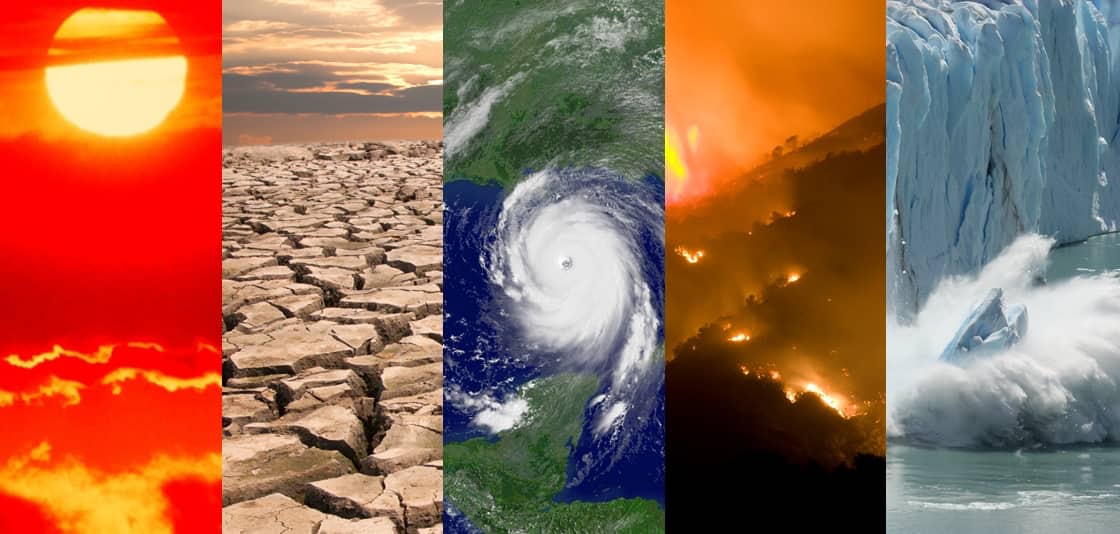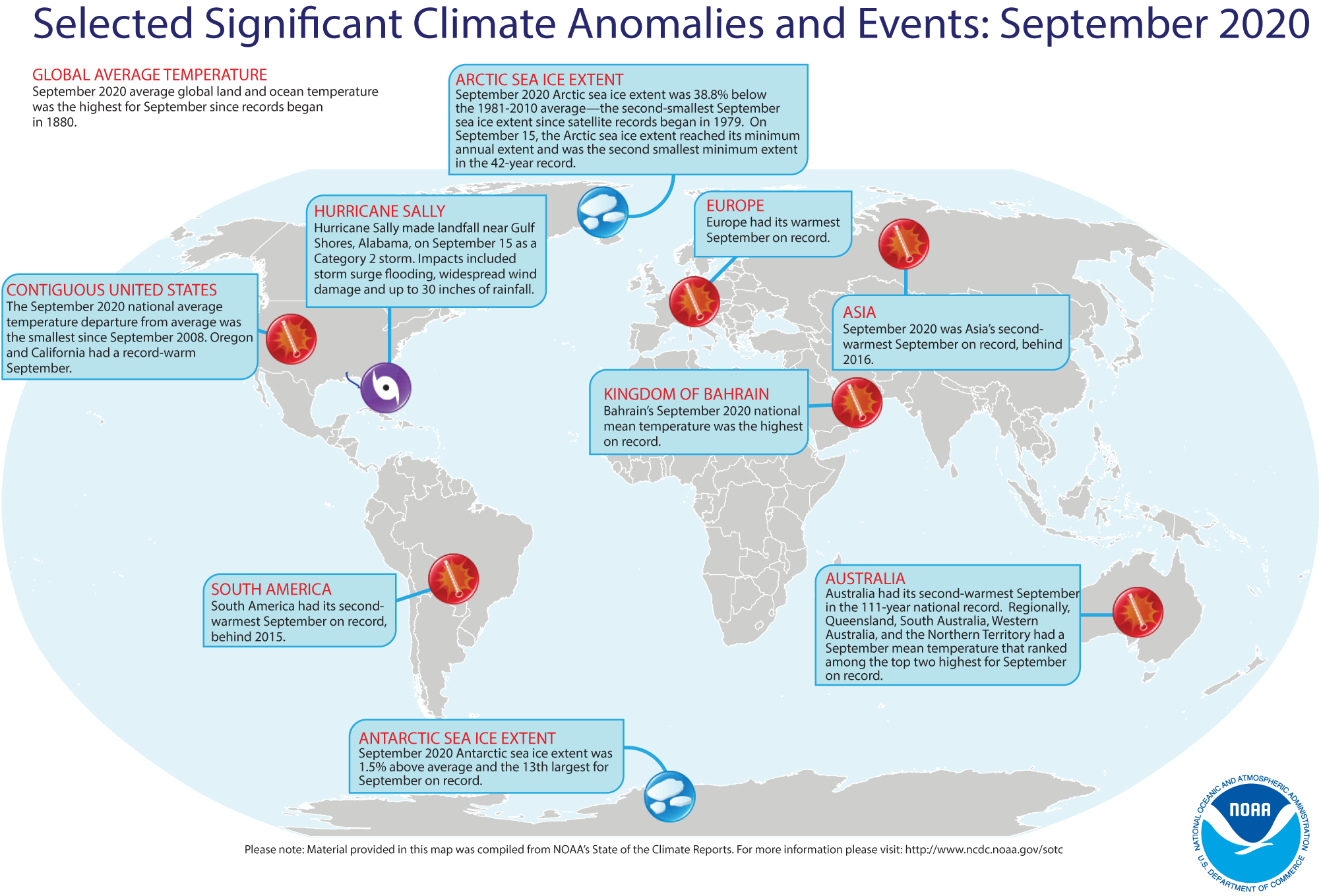
This post first appeared on the NOAA website
Unprecedented heat around the world vaulted September 2020 to the hottest September since 1880, according to scientists at NOAA’s National Centers for Environmental Information.
The month’s warmth also contributed to 2020’s trend as a remarkably hot year, with the year-to-date global temperatures running second highest in the 141-year climate record.
Below are more facts and stats from NOAA’s latest monthly global climate report:
Climate by the numbers
September 2020
The average global temperature in September was 1.75 degrees F — 0.97 of a degree C — above the 20th-century average of 59.0 degrees F (15.0 degrees C).
This surpasses the average global temperatures for both September 2015 and 2016 by 0.04 of a degree F (0.02 of a degree C), which previously tied for the hottest Septembers on record.
The 10-warmest Septembers have all occurred since 2005, with the seven-warmest Septembers occurring in the last seven years.
The year to date | January through September 2020
The year-to-date (YTD) average global temperature was the second hottest on record at 1.84 degrees F (1.02 degrees C) above the 20th-century average. This is only 0.07 of a degree F (0.04 of a degree C) shy of the record set for the same YTD in 2016.
The Northern Hemisphere’s YTD temperature tied with 2016 as the hottest on record, while the Southern Hemisphere saw its fourth hottest YTD.

More notable climate facts and stats
- Arctic sea ice was at near-record lows: Average Arctic sea ice coverage (extent) for September ranked second smallest on record. On September 15, sea ice-covered just 1.44 million square miles of the Arctic, the second-smallest minimum extent on record behind September 17, 2012. The 14 smallest minimum annual extents have occurred in the last 14 years.
- A record-hot YTD so far for some: Europe, Asia, and the Gulf of Mexico had their warmest January-through-September period on record; South America and the Caribbean region had their second-highest. No land or ocean areas had record-cold YTD temperatures.